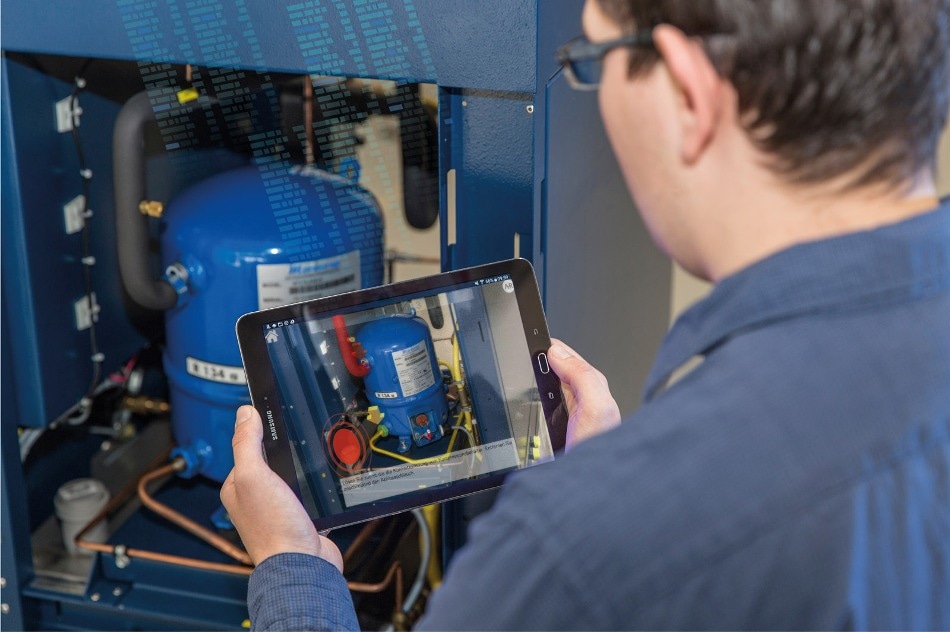Mar 18 2019
The Fraunhofer Institute for Computer Graphics Research IGD will be showcasing Data@Hand at the 2019 Hanover Trade Fair, which is a simple automated data analysis technology for a range of application settings. Data@Hand detects abnormalities from the normal working of a component, a machine, or a production installation—and can also be applied in medicine. It enhances processes on the foundation of artificial intelligence using principles of machine learning.
 Data@Hand detects deviations from the normal operation of a machine. (© Fraunhofer IGD)
Data@Hand detects deviations from the normal operation of a machine. (© Fraunhofer IGD)
This is what the future may look like: A company directly integrates a sensor unit that examines data and detects irregularities in each installation it makes. The installations are sold internationally, and as soon as they are in action they convey their data to a common cloud. In this manner, all installations across the world can learn from each other how standard operation should carry on. If there is nonconformity this is detected, even if this unidentified pattern has never transpired in the individual installation. "What's special about this is that we can react to operating conditions that have never yet arisen before and have a system that is constantly evolving. Through learning by itself it recognizes normal operating conditions and deviations" explains Dr.Ing. Mario Aehnelt, Head of the Department "Visual Assistance Technologies" at the Fraunhofer IGD in Rostock.
Optimum algorithm incorporation for every customer
Data@Hand is an information and data tool for humans in working processes which is intended for process optimization and is founded on the principles of machine learning and artificial intelligence. It supports the examination of multifaceted data volumes but leaves the particular decisions on how to react to irregularities to the skilled expert. Through independently addressed questions Data@Hand ensures optimal algorithm incorporation for all customers. In the same way as, for instance, vital data of a patient, and machine data from production can be assessed more rapidly. Analysis can not only happen via a robust server-based platform, but also on ultra-small systems directly linked to the machine or patient.
Data@Hand can also be linked to current AI tools and data processing platforms (MES/ERP) or be used for visual data formatting, by way of Health@Hand or Plant@Hand3D, for instance. Customers can, thus, work using systems they are already acquainted with.
Live data analysis at the Hanover Trade Fair
At the Hanover Trade Fair, researchers from the Fraunhofer IGD will demonstrate how a real extra value can be created from a pure data collection through intelligent examination using Data@Hand and the visualization of critical circumstances. In an example demonstration, the operating settings in a compressor unit will be altered to various degrees and the machine parameters of vibration, temperature, and power uptake will be examined. The recognition analysis takes place on the directly connected sensor unit. With these data, irregularities and new operating effects are identified in real time. As soon as the operating behavior diverges from the regular path a warning is given. With the acquired data, not only the causes of glitches can be examined, but it is also possible to predict what would help to reduce maintenance costs.
At the 2019 Hanover Trade Fair, between April 1st and 5th the technology will be demonstrated live at the joint Fraunhofer booth A30 in Hall 6.